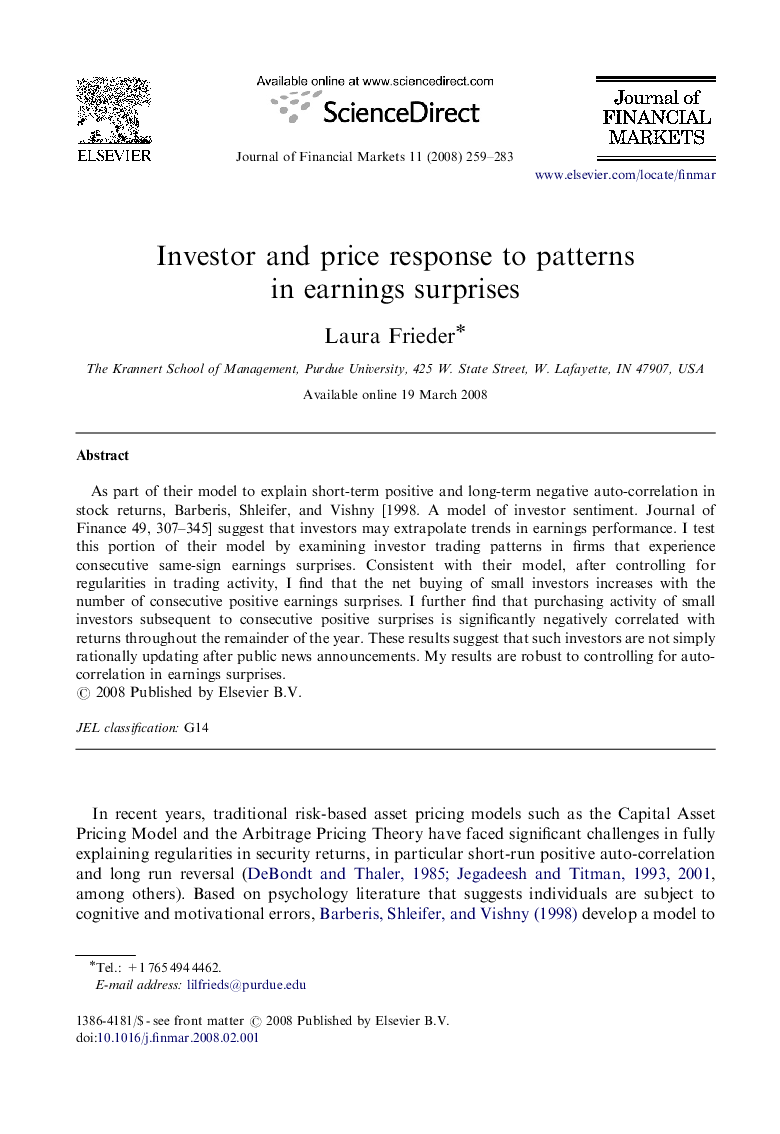| Article ID | Journal | Published Year | Pages | File Type |
|---|---|---|---|---|
| 961157 | Journal of Financial Markets | 2008 | 25 Pages |
Abstract
As part of their model to explain short-term positive and long-term negative auto-correlation in stock returns, Barberis, Shleifer, and Vishny [1998. A model of investor sentiment. Journal of Finance 49, 307-345] suggest that investors may extrapolate trends in earnings performance. I test this portion of their model by examining investor trading patterns in firms that experience consecutive same-sign earnings surprises. Consistent with their model, after controlling for regularities in trading activity, I find that the net buying of small investors increases with the number of consecutive positive earnings surprises. I further find that purchasing activity of small investors subsequent to consecutive positive surprises is significantly negatively correlated with returns throughout the remainder of the year. These results suggest that such investors are not simply rationally updating after public news announcements. My results are robust to controlling for auto-correlation in earnings surprises.
Related Topics
Social Sciences and Humanities
Economics, Econometrics and Finance
Economics and Econometrics
Authors
Laura Frieder,
